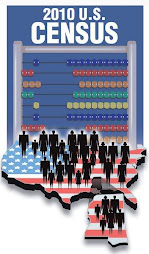Stateline.org reports on Census outreach efforts across the nation. Check it out:
With the 2010 Census a year away, some states already are bracing for the nationwide head count that will decide their share of U.S. House seats and billions of federal dollars. The new population numbers also will be used to redraw state legislative districts.
Determined to get every resident counted, states are launching Web sites and committees to spread the word to residents, including hard-to-count groups. Illegal immigrants, afraid to fill out their surveys for fear of deportation, and transient families, displaced by home foreclosures, present new challenges to outreach efforts.
Population projections estimate that next year’s count will shift some House seats from states in the Northeast and Midwest to states in the South and West, according to a recent study by Election Data Services, a political consulting firm based in Virginia. The total number of representatives, 435, will not change.
The Census results also will determine states’ share of federal funds.
“There are a lot of (federal) programs, which are based on census data formulas, and the better count that we can get means we’ll have more federal dollars coming back to us,” said Ditas Katague, who is directing California’s Census efforts for 2010.
Mandated by the U.S. Constitution, the Census determines the country's population every 10 years. Starting next April 1, the federal government will collect demographic information on the more than 300 million U.S. residents. Households that do not answer Census surveys are visited by federal workers.
Nine states —Arizona, Florida, Georgia, Nevada, North Carolina, Oregon, South Carolina, Texas and Utah — stand to gain U.S. representatives in the upcoming Census. Texas could gain the most: four additional seats. The state’s rapid population growth can be attributed to low death rates and a relatively young population with high birth rates, the result of a burgeoning Hispanic population, said Texas state demographer Karl Eschbach. Immigration from other states and foreign countries has contributed to its growth as well, he said.
Tuesday, April 28, 2009
Subscribe to:
Post Comments (Atom)

No comments:
Post a Comment